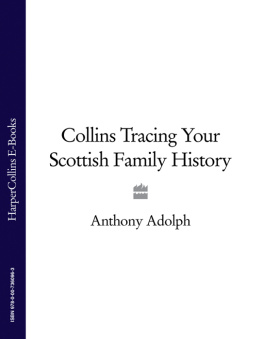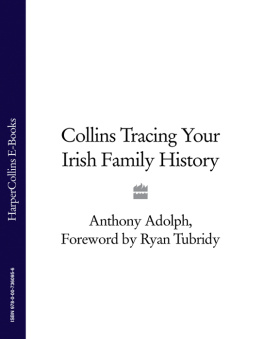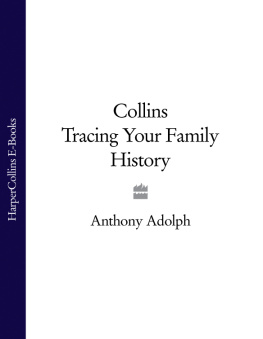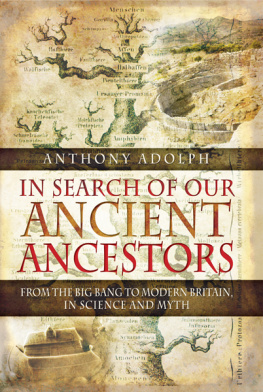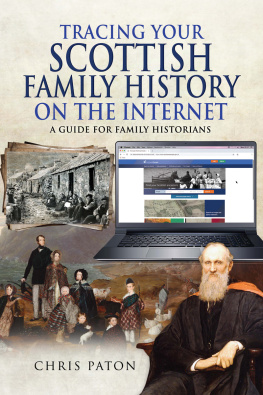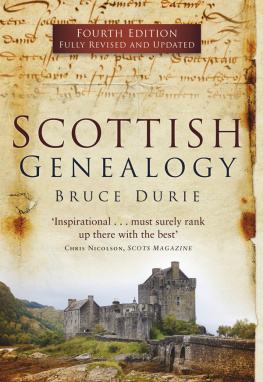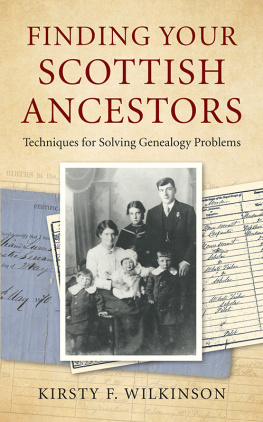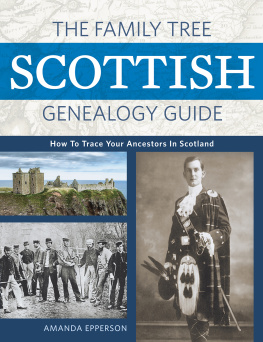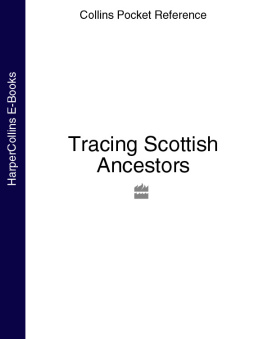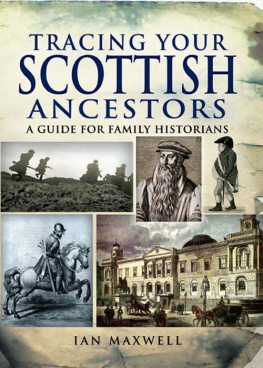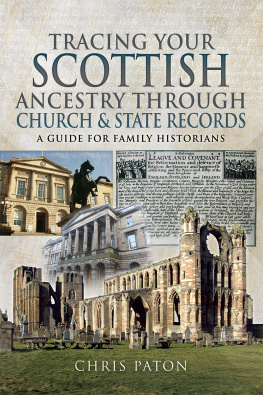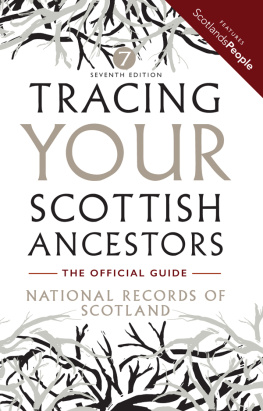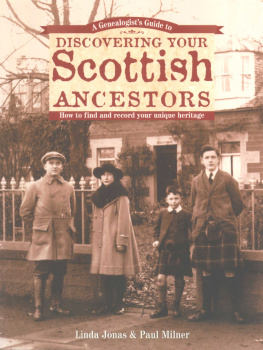To our very good friend Dean Laurent de Bubier
This book was written to mark the 250th anniversary in 2009 of the birth of Robert Burns, the Ploughman Poet, whose words captured the spirit of the Scottish nation. His anniversary year has been declared Scotlands Homecoming Year, which aims to encourage Scots all over the world to come back to visit, and to assure them of a warm welcome when they do.
To come home you need to know where you come from. Underpinning Homecoming Year is genealogy, the study of family trees or pedigrees, and its associated discipline of family history, the study of the stories behind the pedigrees. In many countries, computerization of records has rocketed genealogy from a minority interest into an immensely popular obsession. But in Scotland, knowing your roots is nothing new. Right back in the sixteenth century, the French joked of any Scotsman they encountered that man is the cousin of the king of the Scots, for that was what he would surely claim. A rather more cynical view was penned in the mid-eighteenth century by Charles Churchill (1731-64), in his Prophecy of Famine: Two boys, whose birth beyond all question springs From great and glorious, tho forgotten kings, Shepherds of Scottish lineage, born and bred On the same bleak and barren mountains head
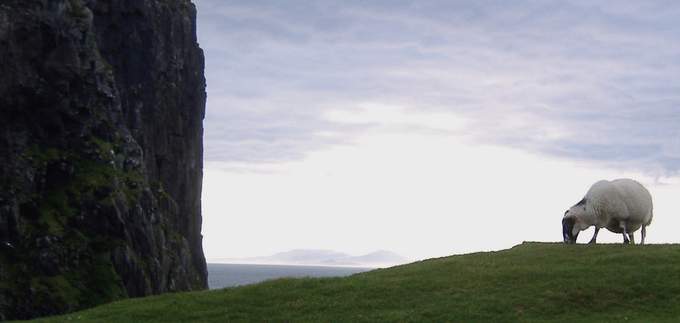
With a population of just over five million, there are many parts of Scotland where the ubiquitous sheep are more easily found than people.
Sarcastic, yes, but accurate, for many of the widespread Lowland families and Highland clans were indeed founded by scions of Scotlands ruling dynasties, be they in origin Pict, Briton, Gael, Viking or Norman. And such knowledge was not lost, especially in the Gaelic-speaking parts, when ancestors names were remembered through the sloinneadh, the patronymic or pedigree, in which two or more often many generations of ancestors names were recited, and which was a natural part of everyones sense of identity.
Such essential knowledge was threatened, diluted, and sometimes lost by migration, whether to other parts of Scotland or over the seas in the white-sailed ships. Nonetheless, it results today in many people all over the world being able to point at a particular spot on the map of Scotland and say, that is home.
This book is for those who cant, but want to, or who can but want to learn more. I know that many aspects of genealogy such as DNA and nonconformity can seem terribly complicated, and that some specific aspects of Scottish genealogy (such as services of heirs, wadsets and precepts of clare constat) seem to have been designed purposely to intimidate the faint-hearted. And, given the great amount of contradictory information flying about, does your Scottish surname actually indicate that you belong to a clan, or may wear a tartan, or doesnt it?
I hope this book will help guide you through these issues, to develop a much fuller understanding of your Scottish family history, and to find your own way back, so to speak, to your Scottish home.
Abbreviations
| FHC | Mormon Family History Centres |
| GROS | General Register Office of Scotland |
| NAS | National Archives of Scotland |
| NLS | National Library of Scotland |
| NRAS | National Register of Archives of Scotland |
| SGS | Scottish Genealogy Society |
| SHS | Scottish History Society |
| SoG | Society of Genealogists (London) |
| SRS | Scottish Record Society |
| TNA | The National Archives (Kew, London) |

Future meets past: old Ally Alistair MacLeod was a Highland crofter, descended from Viking chieftains. His tiny granddaughter Moira Hooks was born after her mother (whose sister is shown here) had moved away to Glasgow. Now she and her descendants all live in England. This picture captures the only time they ever met (courtesy of the MacLeod Family Collection).
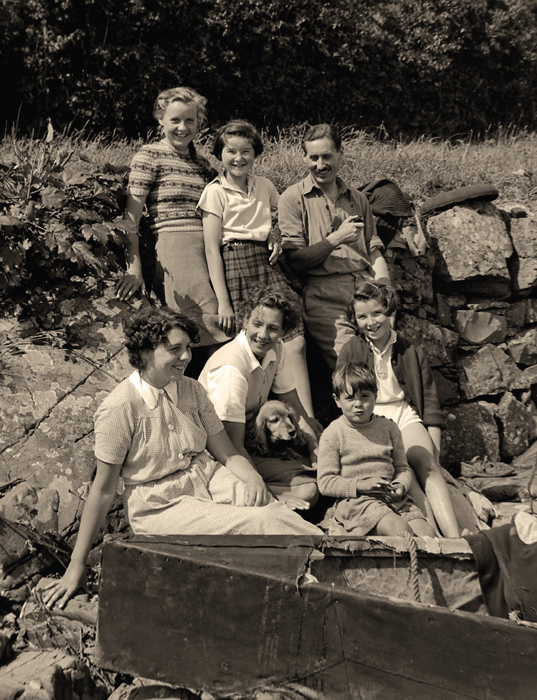
Old family photographs provide the perfect backdrop to your research, helping bring the past to life.
The very first steps in tracing your Scottish family history are to talk to your relatives and keep a note of what they tell you. This section suggests what to ask, and how to record your growing store of information about your family tree. The next step is to identify archives or organizations, which are introduced in this section. Before diving any deeper into your research, it is helpful to gain a background understanding of Scotlands geography and naming systems.
Ask the family
The first resource for tracing your Scottish family history is your own family. Meet, email or telephone your immediate relatives and ask for their stories and copies of old photographs and papers, especially family bibles, old birth, marriage and death certificates or memorial cards. Even old address books can lead you to relatives worldwide, who will be able to extend your family tree. Disappointingly, old photographs seldom have names written on the back: they may show your ancestors, but they are anonymous. Old ones often show the photographers name and address, and some firms records are in local archives. Directories (see p. 88-9) can show when the photographer was trading, helping to give the photograph a rough date, and the mere location can be a clue as to which side of your family is being depicted. And, please, write names on the back of your own photos, to save future generations this frustration, or even include a family tree in your own photo albums, to show whos who.

This photograph of Catherine and Jane Wilson in 1923 is usefully marked on the back Drummond Shields Studio, Edinburgh, thus suggesting the area where these girls may have grown up (courtesy of Janes daughter-in-law, Helen Taylor).
When you interview a relative, use a big piece of paper to sketch out a rough family tree as you talk, to keep track of who is who. Structure your questions by asking the person about themselves, then:
their siblings (brothers and sisters)
their parents and their siblings
their grandparents and their siblings
and so on. Then, ask about any known descendants of the siblings in each generation. The key questions to ask about each relative are:
full names
date and place of birth
date and place of marriage (if applicable)
occupation(s)
place(s) of residence
religious denomination, whether Church of Scotland, Free Church, Catholic, Jewish, and so on.
any interesting stories and pictures.
Next, ask for addresses of other relatives, contact them and repeat the process. Once you know the name of a village where your ancestors lived, try tracking down branches of the family who remained there, for people who
Sennachies
Before Christianity and literacy came to Britain, a special class of Druid, the seanachaidh or sennachie, memorized and recited the royal

